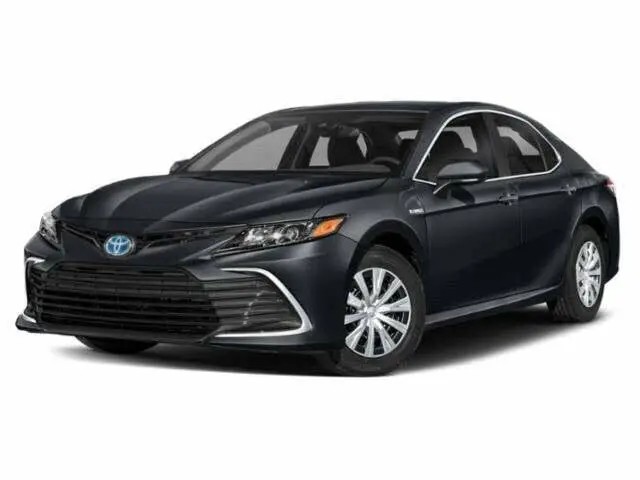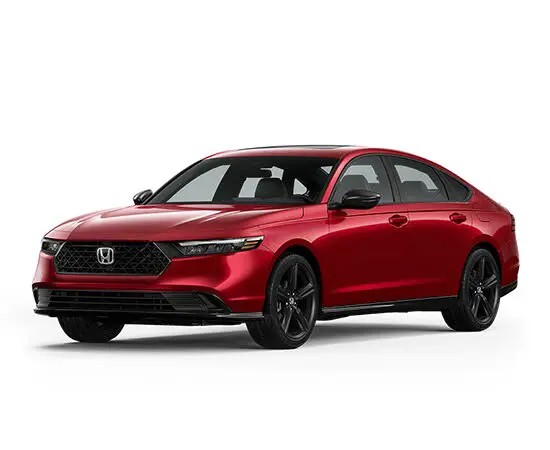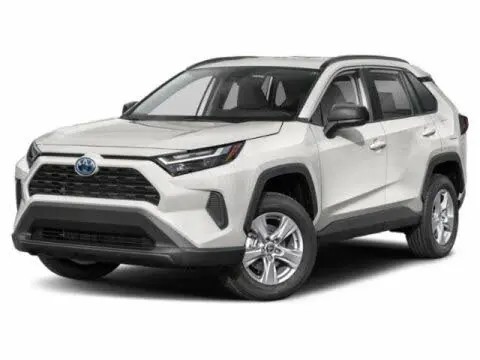In an era where fuel costs fluctuate and environmental consciousness is on the rise, choosing a car that’s good on gas is not just a financially sound decision, but also a step towards responsible driving. As your trusted car expert from cardiagnosticnearme.com, I understand the importance of maximizing fuel efficiency. This guide dives deep into the world of fuel-efficient vehicles for 2024, exploring why gas mileage matters, what factors influence it, and highlighting the top models that will save you money at the pump and reduce your carbon footprint.
Understanding and Appreciating Fuel Efficiency
At its core, fuel efficiency is about how effectively a vehicle converts fuel energy into motion. It’s typically measured in miles per gallon (MPG) in the US, indicating how many miles a car can travel on one gallon of gasoline. A higher MPG rating signifies better fuel efficiency, meaning the car consumes less fuel to travel the same distance. Understanding this metric is crucial for anyone looking to minimize fuel expenses.
Why Gas Mileage is More Important Than Ever
The significance of good gas mileage extends beyond just saving money. It’s a multifaceted benefit that impacts your wallet and the planet:
- Economic Savings: Fuel is a recurring expense of car ownership. A car that’s good on gas drastically reduces your visits to the gas station, translating to substantial savings over the vehicle’s lifespan. These savings can free up your budget for other important needs.
- Environmental Responsibility: Cars are a significant source of carbon emissions, a major contributor to climate change. Fuel-efficient cars burn less fuel, thus emitting fewer greenhouse gases. Choosing a car good on gas is a proactive step towards a cleaner, healthier environment for future generations.
- Stability in Fuel Price Volatility: Gas prices are notoriously unpredictable, influenced by global events and market fluctuations. Owning a car with excellent gas mileage provides a buffer against these price swings, offering greater financial predictability and peace of mind.
How Fuel Efficiency Ratings Are Determined
To ensure fair comparisons, fuel efficiency is measured through standardized tests simulating real-world driving conditions. Organizations like the Environmental Protection Agency (EPA) conduct these tests, evaluating both city and highway driving scenarios. These tests provide an average MPG rating, allowing consumers to compare vehicles accurately. It’s important to remember that these are standardized ratings, and your actual MPG may vary based on your driving habits and conditions.
Beyond the car itself, your driving habits and vehicle maintenance significantly impact fuel efficiency. Aggressive driving, characterized by rapid acceleration and hard braking, wastes fuel. In contrast, smooth acceleration, consistent speeds, and anticipation of traffic flow can significantly improve your MPG. Regular car maintenance, including proper tire inflation, timely oil changes, and air filter replacements, also ensures your vehicle operates at peak fuel efficiency. By being mindful of both your car choice and driving habits, you can truly maximize your fuel savings and minimize your environmental impact.
Key Factors When Selecting a Car Good on Gas
Choosing a fuel-efficient car involves considering several factors to ensure it meets your needs and preferences while maximizing gas mileage.
Vehicle Size and Class
The size and type of vehicle are primary determinants of fuel efficiency. Smaller, lighter vehicles generally offer better gas mileage than larger, heavier ones. For individuals or small families primarily commuting or driving in urban environments, compact cars or fuel-efficient sedans are excellent choices. However, if you require more passenger or cargo space, or need towing capability, consider midsize cars or SUVs equipped with fuel-saving technologies like hybrid powertrains.
Engine Technology and Type
Engine technology plays a pivotal role in fuel efficiency. Hybrid and electric vehicles (EVs) are at the forefront, combining electric motors with gasoline engines (hybrids) or eliminating gasoline engines entirely (EVs) for exceptional fuel economy or zero emissions. Advancements in traditional internal combustion engines (ICE) have also yielded improvements. Technologies like turbocharging (using smaller, more efficient engines boosted by a turbocharger), direct fuel injection (precisely delivering fuel for optimal combustion), and variable valve timing (optimizing engine performance across different speeds) all contribute to better MPG in modern gasoline cars.
Driving Style and Environment
Your driving habits and typical driving conditions significantly influence real-world fuel efficiency. Smooth, consistent driving maximizes MPG, while aggressive acceleration, braking, and high speeds decrease it. Stop-and-go city traffic is less fuel-efficient than steady highway cruising. If you primarily drive in congested urban areas, a hybrid or EV might be particularly advantageous due to their efficiency in stop-and-go conditions. Aerodynamics also plays a role; sleeker car designs reduce wind resistance, improving fuel economy, especially at highway speeds. Vehicle weight is another factor; lighter cars require less energy to move, enhancing MPG. Car manufacturers use lightweight materials like aluminum and high-strength steel to reduce vehicle weight without compromising safety.
The Trajectory of Fuel Efficiency in Cars
The automotive industry is in constant evolution, driven by stricter emissions regulations and consumer demand for fuel-efficient vehicles. The future of cars good on gas is being shaped by continuous innovation and a push towards sustainability.
Innovations in Fuel-Saving Technologies
Automakers are investing heavily in research and development to push the boundaries of fuel efficiency. This includes refining engine technologies, developing lighter materials, optimizing aerodynamics, and advancing electric and hybrid powertrains. We can anticipate even more sophisticated systems in future cars, further improving fuel economy and reducing reliance on fossil fuels. Beyond gasoline and electric, alternative fuels like hydrogen fuel cells and biofuels are also being explored, promising a more diversified and sustainable energy landscape for transportation.
The Role of Regulations and Consumer Behavior
Government regulations and emissions standards worldwide are major drivers for fuel efficiency advancements. Stricter regulations compel automakers to innovate and produce cleaner, more efficient vehicles. These regulations not only shape the cars available but also influence consumer choices. Furthermore, increasing consumer awareness about the economic and environmental benefits of fuel efficiency is changing buying habits. Educating drivers about eco-driving techniques, such as maintaining proper tire pressure, adhering to maintenance schedules, and avoiding aggressive driving, can also significantly improve overall fuel consumption and contribute to a greener future. International collaborations on environmental initiatives are further amplifying the focus on fuel efficiency, setting global targets for emissions reduction and promoting sustainable transportation solutions.
Top 11 Cars Renowned for Being Good on Gas in 2024
Now, let’s explore some of the top contenders for the title of “best cars good on gas” in 2024, categorized by vehicle type:
Compact Cars with Exceptional Gas Mileage
1. Toyota Prius: The Toyota Prius remains the benchmark for fuel efficiency in the compact car segment. A pioneer of hybrid technology, the Prius delivers outstanding MPG, making it ideal for both city commuting and long journeys. Its spacious interior and comfortable ride further enhance its appeal.
 __wf_reserved_inherit
__wf_reserved_inherit
2. Honda Civic: The Honda Civic is celebrated for its blend of fuel efficiency, reliability, and sporty styling. Its efficient engine and aerodynamic design contribute to impressive gas mileage, making it a practical and fun-to-drive option for daily commutes and weekend trips.
3. Hyundai Ioniq: The Hyundai Ioniq stands out with its multiple powertrain options – hybrid, plug-in hybrid, and electric – all focused on maximizing fuel economy. The Ioniq offers a comfortable cabin and a smooth ride, appealing to eco-conscious drivers seeking versatility and efficiency.
 __wf_reserved_inherit
__wf_reserved_inherit
4. Volkswagen Golf: The Volkswagen Golf provides a compelling combination of performance and fuel efficiency. Its turbocharged engine delivers a responsive driving experience while maintaining impressive gas mileage, appealing to drivers who value both economy and driving dynamics.
5. Mazda 3: The Mazda 3 earns its spot with its stylish design, engaging driving dynamics, and commendable fuel efficiency. It’s a well-rounded compact car that doesn’t compromise on fuel economy for driving enjoyment.
Midsize Cars Known for Their Gas Mileage
 __wf_reserved_inherit
__wf_reserved_inherit
6. Toyota Camry Hybrid: The Toyota Camry Hybrid is a leader in the midsize sedan category for fuel efficiency. It combines Toyota’s renowned hybrid technology with the Camry’s spaciousness and comfort, offering excellent MPG without sacrificing performance or style.
7. Kia K5 Hybrid: The Kia K5 Hybrid (formerly Optima) offers a compelling blend of fuel efficiency, modern features, and comfortable driving. Its hybrid powertrain delivers impressive gas mileage, making it a smart choice for eco-conscious drivers seeking a stylish and practical midsize sedan.
 __wf_reserved_inherit
__wf_reserved_inherit
8. Honda Accord Hybrid: The Honda Accord Hybrid is a standout in the midsize segment, seamlessly integrating hybrid efficiency with the Accord’s reputation for reliability and comfort. It offers excellent fuel economy, a spacious interior, and advanced technology, making it a top choice for families and commuters alike.
Fuel-Efficient SUVs Offering Great Gas Mileage
9. Ford Escape Hybrid: For those needing the versatility of an SUV without compromising on fuel efficiency, the Ford Escape Hybrid is an excellent option. It combines a hybrid powertrain with SUV practicality, delivering impressive gas mileage in a capable and family-friendly package.
 __wf_reserved_inherit
__wf_reserved_inherit
10. Toyota RAV4 Hybrid: The Toyota RAV4 Hybrid is a popular choice in the compact SUV segment, offering exceptional fuel efficiency without sacrificing functionality or style. Its hybrid powertrain provides impressive MPG, combined with the RAV4’s spacious interior and available all-wheel drive, making it ideal for both daily driving and outdoor adventures.
11. Lexus UX Hybrid: The Lexus UX Hybrid brings luxury and fuel efficiency together in a compact SUV. It provides a refined driving experience with excellent gas mileage, making it a compelling choice for those seeking a premium and eco-conscious SUV.
Maximizing the Fuel Efficiency of Your Car Good on Gas
Choosing a car good on gas is a smart start, but maximizing its fuel efficiency requires ongoing effort and mindful practices. By adopting these tips, you can further reduce your fuel consumption and environmental impact. Investing in a fuel-efficient vehicle is a step towards sustainability, conserving resources, and reducing greenhouse gas emissions in the automotive sector.
Essential Maintenance for Optimal MPG
Regular maintenance is paramount to keeping your car running efficiently.
- Tire Inflation: Maintain proper tire pressure as recommended by the manufacturer. Underinflated tires increase rolling resistance, reducing fuel economy.
- Regular Oil Changes: Adhere to the manufacturer’s recommended oil change intervals. Use the recommended grade of motor oil, as it reduces engine friction and improves MPG.
- Air Filter Replacement: Replace air filters regularly. A clogged air filter restricts airflow to the engine, reducing efficiency.
- Scheduled Service: Follow the manufacturer’s recommended service schedule for tune-ups and other maintenance tasks.
Driving Habits for Enhanced Fuel Efficiency
Your driving habits have a significant impact on fuel economy.
- Smooth Driving: Avoid aggressive acceleration and hard braking. Gentle acceleration and smooth deceleration conserve fuel.
- Maintain Steady Speed: Use cruise control on highways to maintain a consistent speed, optimizing fuel efficiency.
- Minimize Idling: Avoid excessive idling. If you’re stopped for more than a minute, turn off the engine.
- Reduce Air Conditioning Use: Air conditioning consumes extra fuel. Use it judiciously, especially at lower speeds. Consider using ventilation or recirculating air when possible.
- Plan Trips Efficiently: Combine errands into single trips and plan routes to avoid traffic congestion.
- Reduce Vehicle Weight: Remove unnecessary items from your car to reduce weight, as lighter vehicles are more fuel-efficient.
Conclusion: Choosing the Right Car Good on Gas for You
In conclusion, the 2024 automotive market offers a diverse range of cars good on gas, spanning compact cars, midsize sedans, and SUVs. These vehicles prioritize fuel efficiency without sacrificing performance, features, or style. When selecting the best car good on gas for your needs, consider your individual requirements, driving habits, and budget. By choosing a fuel-efficient vehicle and adopting fuel-conscious driving and maintenance practices, you not only save money but also contribute to a more sustainable and environmentally responsible future.
[
